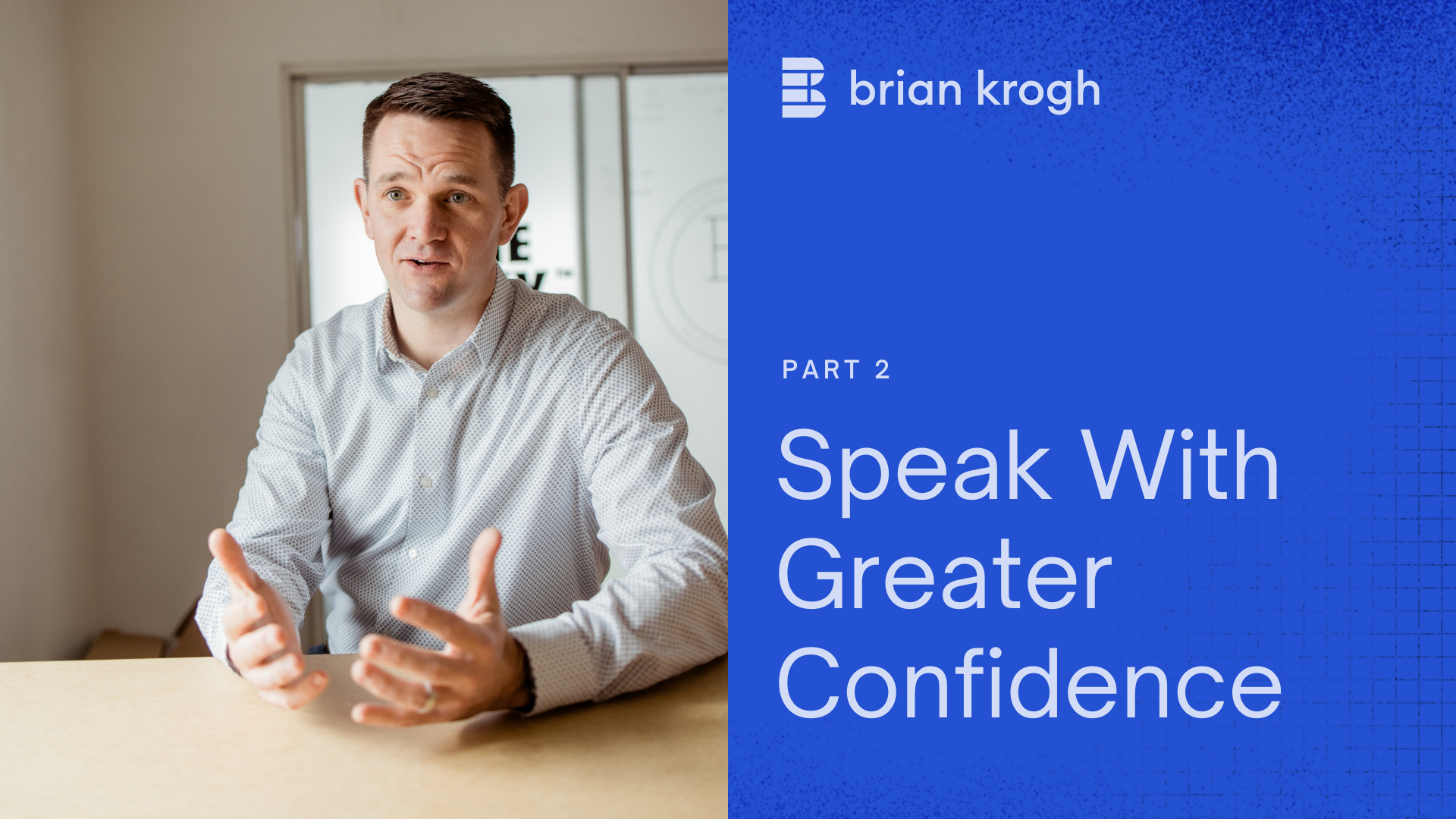Download the Workbook
Video Transcript
Welcome back. This is session two in this series of how you can overcome fear and anxiety when it comes to public speaking and I said in our first time together that if you deal with fear when it comes to public speaking, that you are two things you are both normal and you're a little weird and I like that you're weird, I like that you're different, you're normal in that you deal with this anxiety around public speaking. Nearly everybody does. But you're a little weird because very few people actually do anything about it. You're one of the few people that is taking energy and effort and working to manage those nerves and overcome your fear. I said in that first series part of being normal is that our brain is detecting a threatening situation when we get up to speak and so that amygdala, that threat center in our brain perceives public speaking situations as a real threat to us and we need to learn to tap into the prefrontal cortex and draw a giant question mark over our brain's conclusions.
I said to do that, you need to learn to give yourself CPR and I don't mean that you should lie down and start giving yourself chest compressions. I am giving you three tips here that I think will be incredibly helpful to you and I know have been helpful to many others when it comes to overcoming your fear around public speaking. That C and C. P. R. Stands for this control everything you can control.
You know, there's so much when we can stand up to speak that we cannot control, we cannot control. If people are on time, we can't control their cell phone or their watch, alarm goes off in the middle of our talk, we cannot control if someone asks a question that we weren't expecting. I've had so many of those things happen to me. I've had the rogue question, I didn't expect. I've had the person in the audience that was just having a bad day that wanted to try to derail a presentation I was giving, I've had people's alarms go off, I've had the fire alarm go off.
The one that really sticks out in my mind is one time I was giving a presentation and someone in the room was sitting and just clicking a ballpoint pen over and over and over again and I could hear it and it was clear by everyone's eyes and reactions in the room that they could hear it. But for some reason the person who was doing it with this nervous habit of theirs could not hear it at all, and it was like the sound was reverberating throughout the room. I was not focused on my presentation, the rest of the room wasn't focused on the presentation, we were all focused on the ball point pen and just trying to will this person to stop clicking. None of us felt comfortable calling out this person in public. So we just dealt with it.
And I think all those situations, those things that we cannot control can contribute to anxiety and fear when it comes to public speaking. So I'm telling you today to do everything that you can to take back some of that control. Yeah, they'll always be things you can't control when you stand up and speak, but there's a lot that you can control. And many of us we make the mistake of not controlling the things that are well within our reach to control. You can control if the night before your presentation, you get enough sleep or that you eat well that morning you can control if you put enough time and energy and effort into the presentation. You can show up early, stand at the front of an empty room and picture what it would be like to give a successful presentation in that space. You can be there to greet everyone as they walk in the room, ask them how their day is going abnd ask if they have any questions around your upcoming presentation or if they have any thoughts that they would like to share ahead of the presentation with you. And you can control if the technology works you can get there early, plug in your computer, make sure all the slides are working. How many of us have tried to start a presentation and we go to plug in our computer and it doesn't work. And so the first five or 10 minutes of our presentation is someone trying to track down the I. T. person so that we can get the technology working. And all of that just just serves to to fan the flames of anxiety that we deal with around public speaking. So why not take back some control?
It is entirely possible for you to overcome your fear and anxiety when it comes to public speaking you can do it. And the first step is to begin to focus on controlling what you can control. I'll tell you what the next step is the next time we gather I'll see you then.
